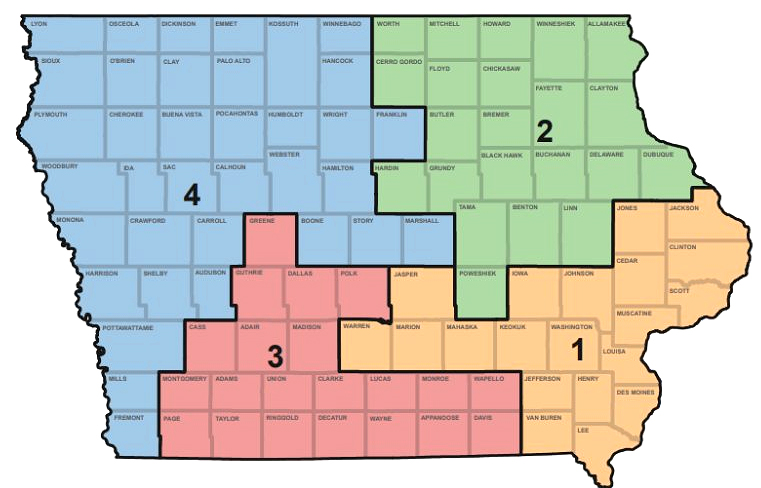By Jim Ellis — June 7, 2022
Primaries
Voting Today: Seven States Host Primaries — One of the busiest nomination days occurs today and voters will be choosing November candidates in states stretching from California to New Jersey. Those state primaries on the calendar for today include California, Iowa, Mississippi, Montana, New Jersey, New Mexico, and South Dakota. One special general election will also be determined, that being the race in California’s 22nd District from which former Congressman Devin Nunes (R) resigned at the end of last year. Republican former state Assembly Minority Leader Connie Conway is the clear favorite to win the special, but will have no place on a congressional ballot during the regular election.Some of the more interesting races include Iowa Democrats choosing an opponent for veteran Sen. Chuck Grassley (R), who will be 89 years old at the time of the general election, former Interior Secretary Ryan Zinke, attempting to return to the House of Representatives from Montana; Mississippi Congressman Steven Palazzo (R-Biloxi), fighting for re-nomination amid an ethics investigation; and a host of US House incumbents attempting to win post-redistricting CDs that in some cases are very different than the ones they currently represent.
House
NY-23: Dems Decide on Nominee; Filing Ends Friday — Gov. Kathy Hochul (D) has scheduled the replacement special election for resigned Rep. Tom Reed’s (R) vacant seat to run concurrently with the regular Aug. 23 congressional primary. Under New York electoral procedure, the party leaders nominate candidates for special elections, and the local Democratic leadership has already made their selection. Retired Air Force Colonel Max Della Pia was selected as the special election nominee, and he will face whomever the Republican leadership decides to nominate. Della Pia also said he will file for the regular term, but the voters will choose the nominee for that race, also on Aug. 23.
Several Republicans are in the mix, the most noteworthy name being mentioned of late is New York Republican Party chairman Nick Langworthy. Candidate filing for the regular election ends this Friday, June 10.
The southwestern Upstate district favors the Republicans. The FiveThirtyEight data organization rating is R+23. Dave’s Redistricting App scores it 55.37 percent R and 41.98 percent D. Former President Trump carried the new 23rd District in 2020 by a 55-43 percent count.
SC-7: Rep. Rice Trailing in Primary Poll — With the South Carolina primary fast approaching on June 14, the Trafalgar Group released a new survey of the Palmetto State’s 7th District that features Republican incumbent Tom Rice (R-Myrtle Beach) who is fighting for re-nomination after being one of the 10 House Republicans to support the second attempt to impeach former President Trump.
According to the Trafalgar data (May 26-29; 572 likely SC-7 Republican primary voters; mixed data collection elements), Rep. Rice trails state Rep. Russell Fry (R-Murrell’s Inlet), Trump’s endorsed candidate, by a substantial 42-25 percent clip within the field of seven Republican candidates. If no one receives majority support, which appears likely according to this poll, the top two will advance into a two-week runoff campaign that will be decided June 28.
Texas: Canvasses for Two Dem Runoffs Finally End — Though recounts are likely to be called, the canvassing process for the state’s two unresolved May 24 runoff elections has concluded. At the end of the counting, both leaders heading into the canvass gained strength.
In Rep. Henry Cuellar’s (D-Laredo) 28th CD, the Congressman increased his lead from a small spread of 177 votes in the unofficial count to 281 votes. In the open McAllen-anchored 15th CD, businesswoman Michelle Vallejo (D) increased her tiny lead from 23 votes to 30. In the latter race, attorney and Iraq War veteran Ruben Ramirez is indicating that he will ask for the ballots to be counted again citing the razor-thin difference between the two competitors. Contenders have until tomorrow to officially request recounts.
Assuming that Cuellar and Vallejo are both certified the winners of their runoffs, which is the likely outcome in both cases, they will face Republican former congressional aide Cassy Garcia (R) and insurance agent and 2020 nominee Monica de la Cruz (R), respectively.






